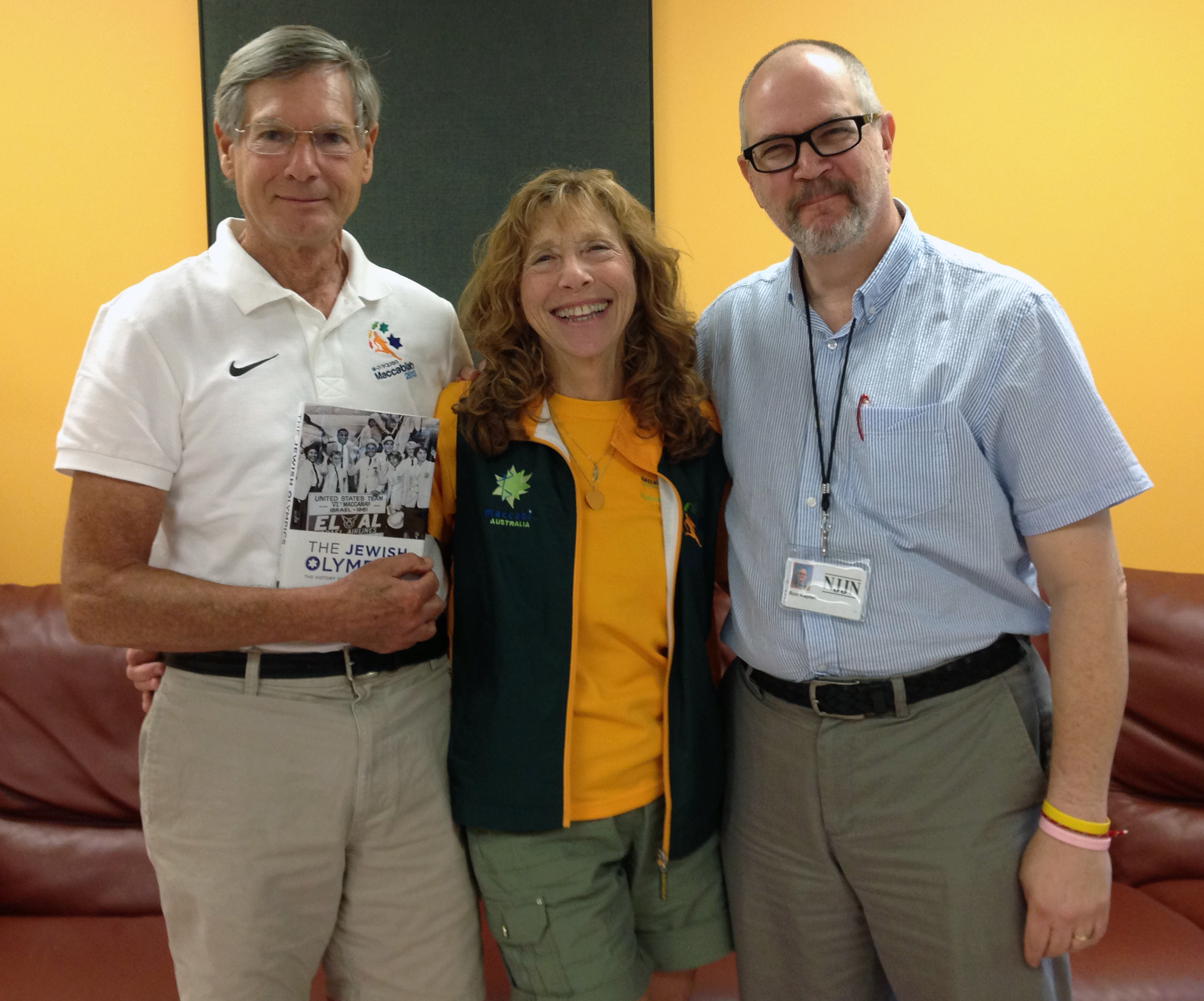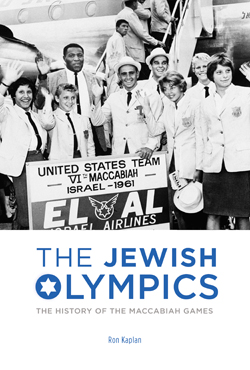
By Donald H. Harrison

 SAN DIEGO – Sportswriter Ron Kaplan of Montclair, New Jersey, maintains a popular blog on Jews and sports so it was not surprising that he was approached by fans of the international Maccabiahs to write a book on the world’s greatest gathering of Jewish athletes.
SAN DIEGO – Sportswriter Ron Kaplan of Montclair, New Jersey, maintains a popular blog on Jews and sports so it was not surprising that he was approached by fans of the international Maccabiahs to write a book on the world’s greatest gathering of Jewish athletes.
He was surprised, however, by the impact that first-time trips to Israel have on the athletes who compete in the Maccabiahs and on himself. Many of the people he interviewed had similar stories: “the epiphanies, as it were, that these men and women, younger and older, had when they went to Israel for the first time,” he said during a telephone interview.
The competitors described “what it was like for them to experience what they had only read about or heard about, coupled with the ability to meet fellow athletes from all over the world. One of the stories that kept popping up was that they never knew there were so many countries that had Jews in them, and the number increases every year. Unlike other international competitions, requirements vary from country to country. One year, for example, you had a fellow who originally was from California who was going to Japan (to study), so he qualified under the guidelines to represent Japan. He was the only athlete from Japan and he won a silver medal for the martial arts!”
Kaplan, author of The Jewish Olympics, will be telling stories from the quadrennial Maccabiahs at 7 p.m., Sunday, Nov. 8, at Temple Solel in Encinitas as part of the annual San Diego Jewish Book Fair.
The sportswriter related that Joseph Yekutieli, whose family immigrated from Russia to Germany, was a fan of international competitions and chafed that many Jewish athletes never got a chance to compete because they weren’t accepted into the sports clubs that helped other athletes qualify.
Initially Yekuteili and like-minded fans hoped that Jews could compete as an ethnicity in various international events, including the Olympics. However, the requirement that each team represent a country, rather than any other kind of entity, made that idea impractical. Thereafter Yekuteili began to push for an all-Jewish competition, resulting in the first international Maccabiah in 1932.
The games were suspended during the Holocaust and World War II, but were revived in the early 1950s in the first few years of the State of Israel’s existence. Eventually the decision was made to hold the games every fourth year in the year after the Olympics.
For some Jews, like swimmer Mark Spitz, the Maccabiah games were a training ground for future greatness. Spitz had won numerous Maccabiah medals when he was a teenager before his name became a household word for winning seven gold medals in the 1972 Olympics. Kaplan said that Spitz’s sister, Nancy, also was a marvelous swimmer, “but you don’t hear much about her anymore.”
To write the book, Kaplan tracked down for interviews former Maccabiah athletes including Carolyn Benjamin, “who participated in 1965 as a swimmer and in the last game (2013) she was a half-marathoner,” he said. “That’s almost a 50-year difference. It was exciting talking to her about how things have changed both in terms of how the Maccabiah is run and the changes in Israel itself.”
One of the darkest moments of the Maccabiah came during the 1997 opening ceremonies during which the athletes marched over a bridge on the Yarkon River to Maccabiah Stadium. As the Australian delegation was crossing, the bridge gave way, injuring many people and killing two persons immediately. Two others died from ingesting the toxins that had previously settled onto the river bed, resulting in lengthy lawsuits and considerable soul-searching in Israel over the status of its waterways.
Kaplan said the United States delegation would have crossed the bridge next because the teams were placed in the parade according to the Hebrew alphabetical order of their countries. In English, the United States would have been toward the back of the procession, but in Hebrew it was one of the first.
Joe Siegman, a Los Angeles-based sports promoter, told Kaplan he was already in the stadium when the bridge collapsed. He recalled that people in the stands kept wondering why the procession had stopped. They were not immediately told of the tragedy, Siegman said.
Interviewing participants was an enjoyable and relatively easy part of Kaplan’s research. What was more difficult, and at times frustrating, was the fact that the Maccabiah’s records, especially the old ones, were not kept methodically, so it was difficult to compare performances from Maccabiah to Maccabiah. Kaplan said this is the exact opposite of such professional sports as baseball where every statistic is computerized and can be instantly accessed.
*
Harrison is editor of San Diego Jewish World. He may be contacted via donald.harrison@sdjewishworld.com